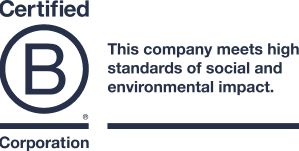“Sustainable luxury” has been an elusive but attractive idea for people who want all of the creature comforts (we don’t blame you) but to live with a clear conscience. To be fair, greenwashing is everywhere, and it can be very difficult to understand what is authentic. Those of us who buy with our beliefs are tracking down the truth behind company claims, trying to understand how supply chains and manufacturing impacts sustainability and shortlist the companies we’re willing to purchase from.
All of these pursuits are important, and part of why we at FiveADRIFT lead with a compelling, but totally honest, product provenance.
In case you haven’t seen it, here is the truth, as it stands today, of the facts behind why we claim to be “ethical and sustainable”:
FiveADRIFT Hemp / Cotton Oversized Beach Towel
The FiveADRIFT hemp & cotton beach towel you purchase enables us to remove up to 75 plastic water bottles or 2 lbs of plastic from the ocean. The first version of our beach towel is made with a blend of completely natural fibers. We use hemp, organic cotton, and traditional cotton. Our towels contain zero plastic (such as nylon, polyester, etc.) and will not shed microplastics into water when you wash them. (This is important because micro plastics are incredibly hard to remove from the ocean with existing technology.) We’ve worked hard to create the first version of this product as transparently as we can by evaluating the complete production process.
Materials – Our towels contain hemp (15%) grown in China, organic cotton (50%) grown in India and traditional cotton (35%) grown in India. The organic cotton is certified to Organic Cotton Standard (OCS) Version 2.0. The dyes we use are on the allowed list by GOTS and OCS and are reactive dyes.
Manufacturing – This product is made in Turkey. A towel typically undergoes a series of chemical washes after being woven to help soften the fabrics. While they make the fabric softer, they may reduce absorbency. We have opted out of these post-weaving chemical washes. Keep in mind that conventional textile manufacturing uses chemical compounds for production, which is a significant source of industrial water pollution, as well as posing the risk of skin irritation, allergic reactions, and health problems. From manufacturing to treating (through washing), products could be exposed to formaldehyde, azo dyes, heavy metals, organotin compounds, and chlorobenzenes.
Mailing – The towels are packaged minimally with a simple recycled cardboard band. Shipment of the towels to our warehouse is done by carbon-offset ocean freight. Warehousing is also carbon-neutral. Packaging for shipping is done with recyclable cardboard boxes and paper tape. Final shipment to you is also carbon offset. We offset our carbon use by buying wind and solar credits, as well as planting trees.
Priorities for Improvement – Circularity. Once you’ve enjoyed the product and it has reached the end of its life, we don’t want you to toss it. We’re working on finding a partner to help us get those products back from you and re-spin them into new products.
The Story Behind Our Sustainability
Here’s the thing: as a consumer, a lot of companies don’t want you to ask questions. Especially companies that are making broad claims about sustainability, eco-friendliness, or (let’s be honest) slapping a recyclable sticker on a product and calling it a “best effort.” But there is so much more that can be done. And, frankly, with a climate change crisis upon us, the onus is on everyone — manufacturers and producers, distributors, buyers — to do our best with every decision.
Before our sustainable towels even went to market, we were considering how to describe them in an honest way. Do they offer zero impact on the environment? No, because nothing does, so we won’t claim that. Are they responsibly manufactured? Yes. Are they responsibly packaged? Yes. Are they responsibly shipped? Yes. We’re sharing everything we know about the process to help shed light on where the industry as a whole needs to come together and solve big problems. We also share this level of detail to encourage your scrutiny and questions to help us improve.
For everyone (you and us), this is a journey. As we both make strides toward doing less harm, here are the frameworks you should evaluate any sustainability claims by:
I. Climate
A. Carbon (Measured / Offset)B. Energy (Fossil / Renewable)
C. Virgin Plastic Use (Made from Oil)
D. Recycled Materials Use (Product, Packaging, Shipping)
E. Farming (Regenerative, Organic, Conventional)
F. Water
II. Waste
A. ManufacturingB. Chemicals
C. Compostable (Product/Packaging, Full or Partial)
D. Recycled Materials (Product/Packaging, Full or Partial)
E. Upcycling
III. Workers
A. Living WageB. Adult Labor
C. Audited Working Conditions
D. Collective Bargaining Rights
IV. End of Life
A. Recyclable Materials (Product/Packaging, Full or Partial)B. Recyclable Composition
C. Reverse Logistics
These are the areas we have prioritized for monitoring, and how we arrived at the language in our product provenance. Disclosing this is important to us, and we think it is important to you, too. Together, we have a chance of doing this thing right: of living earth-loving, sunward-facing lives that sing with brilliance and beauty and leave a trail of life. We don’t think it’s too much to aim for, because this earth is the only one we’ve got.
Our perspective? Instead of just trying to sell a bunch of products with a claim, doing the bare minimum, why not go all-in? Why not be better than ever before? We think it’s possible. We think it’s possible for you, too.
Interested in a sustainable towel? Why, we’d be happy to offer it: shop on our site now.


